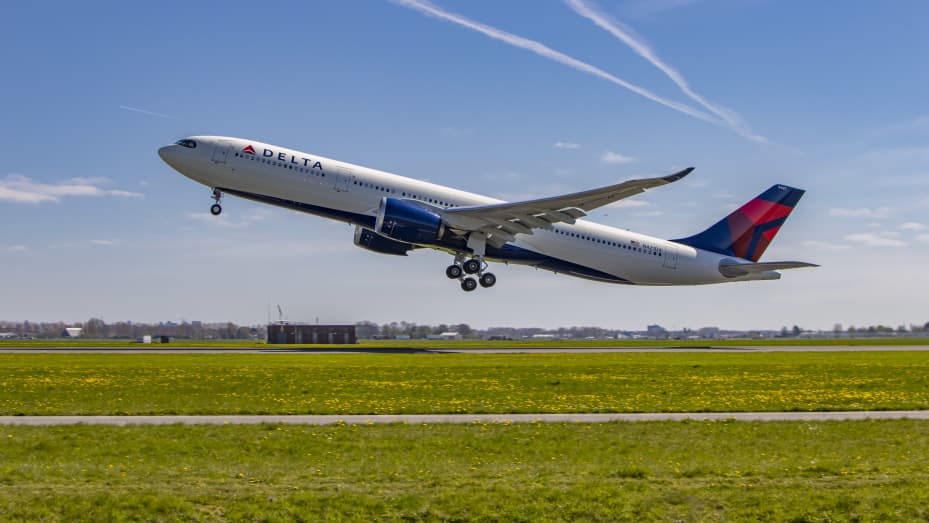Which group is the most powerful may be determined by looking at the shareholders of Delta Air Lines, Inc. (NYSE:DAL). Institutions own the greatest number of shares in the corporation, at 73%. Stated differently, the group is exposed to the greatest possible positive (or negative) possibilities.
And following last week’s 6.4% decline in the company’s share price, institutional investors suffered the most losses. This group of investors could be particularly worried about the present loss, which results in a 2.7% loss for shareholders after a full year.
Because they manage substantial financial resources, institutions, also known as “liquidity providers,” typically have a great deal of influence on changes in stock prices. Because of this, if the downward trend keeps up, institutions could feel under pressure to sell Delta Air Lines, which might be bad news for ordinary investors.
Institutional investors frequently contrast their own returns with those of an index that is widely tracked. As a result, they often do think about purchasing larger businesses that are represented in the pertinent benchmark index.
It’s evident that institutional investors own a respectable portion of Delta Air Lines. This suggests that the analysts employed by those organisations have examined the stock and find it attractive. However, like everyone else, they can be in error. If two sizable institutional investors attempt to sell out of a stock at the same time, it is not unusual to witness a significant decline in share price. Therefore, it is worthwhile to review Delta Air Lines’ historical profits trajectory (below). Naturally, bear in mind that there are more aspects to Also think about.
The board will probably need to take institutional investors’ preferences into consideration because they own more than half of the issued shares. There aren’t many shares of Delta Air Lines held by hedge funds. According to our data, The Vanguard Group, Inc. has 11% of the outstanding shares, making it the largest shareholder. In the meanwhile, the shares that are outstanding are held by the second and third largest owners, respectively, at 7.4% and 6.2%.
Upon examining our ownership information, we discovered that the combined ownership of the top 25 shareholders is less than 50% of the share register, suggesting that no single person holds a majority stake.
Researching a company’s institutional ownership can be valuable, but it’s also a good idea to look into analyst recommendations to have a better understanding of a stock’s predicted performance. It may be worthwhile to check out the forecasts made by the many analysts that cover the stock.
Though the exact definition of an insider might vary, board members are nearly always regarded as insiders. The board, to which the firm management reports, is supposed to represent the interests of the shareholders. Interestingly, senior managers do occasionally sit on the board.
Insider ownership is often seen favourably as it may suggest that the board is in good standing with other shareholders. But occasionally, this group has too much power concentrated within it.
Since the whole public, including individual investors, owns a 27% part in the business, it is difficult to ignore them. Even with such a substantial ownership stake, the firm policy might not be changed if the decision is not in line with that of other major shareholders.

